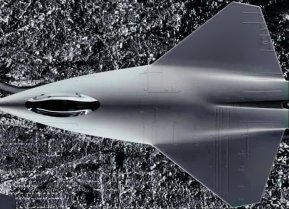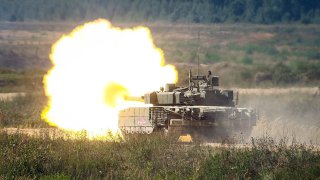Kursk Offensive: Triumph or Tragedy in the Making?
While the overall impact of the Kursk offensive is mixed, it triggered a momentum shift that has raised morale and reinforced Ukraine’s resolve with allies, which is especially important in a U.S. presidential election year that could tip the scales of support for Ukraine one way or another.
The August 6 Kursk surprise came at a time when the drudgery of Russia’s assault on Ukraine felt as though it would continue uninterrupted, for the foreseeable future, in what some have resignedly considered a “forever war” that Ukraine was sure to lose. And while the Kursk offensive has not meaningfully shifted the overall trajectory of the war, it is not without impact. Whether it is best considered a triumph or tragedy is a matter of interpretation, but categorizing it as a triumph might be overstating the case a bit.
The Kursk offensive was a high-risk, moderate-reward activity, which saw Ukraine take Russian territory and demonstrate to the world, chiefly to its NATO benefactors, its capacity for modern warfare. Ukraine now controls hundreds of square miles of Russia, encompassing dozens of Russian villages, and its infiltration has met with little resistance from local populations, or even from the Kremlin itself.
This incursion has reportedly boosted morale among Ukrainian troops and, importantly, among the Ukrainian people who have been living in this brutal war for over two years. Before the Kursk offensive, the status quo was stale and disheartening; a momentum shift was sorely needed to lift spirits and reaffirm popular support for Ukraine’s existential battle for survival.
The Kursk offensive has likely strengthened Ukraine’s bargaining position when it comes to negotiating an end to the war, which, as long as Ukraine enjoys Western backing, will likely not be decided on the battlefield. President Volodymyr Zelenskyy considers this capture of Russian territory an “exchange fund” for use in future land negotiations or prisoner of war (POW) exchanges, despite Putin’s rather rich assertion that peace is now impossible because Russian sovereignty has been compromised.
While some NATO allies might be concerned that Ukraine’s push into Kursk raises the specter of the conflict, and could reinforce Putin’s narrative about the threat posed by the anti-Russian West, it also comes at a time when Zelenskyy needs a symbolic victory to show Ukraine’s partners that their money is well spent. The incursion into Kursk also caught the attention of everyday Russians, who may now better understand their vulnerabilities. The symbolism of Kursk may not be lost on Russians either, as it is the site of a decisive and victorious preemptive Soviet attack on German positions in World War II.
Ukraine likely has little interest in holding Kursk for the long term, in part because doing so diverts valuable resources away from the front lines of defending Ukrainian sovereignty.
Russia’s response to the Kursk offensive was curious in its absence of bombast. The arrival of Ukrainian troops in Russia was met with a muted response from a likely surprised and humiliated Kremlin, revealing weakness in Russia’s war machine. The incursion has reinforced the Russia-under-siege-by-the-West narrative that fuels domestic support for the war and may be used to legitimize retaliatory measures against Ukraine.
While Putin’s response was to shut down hopes for peace, few analysts of this war seriously thought he was ever interested in any sort of peace that would see Russia relinquish stolen Ukrainian lands.
Ultimately, while the overall impact of the Kursk offensive is mixed, it triggered a momentum shift that has raised morale and reinforced Ukraine’s resolve with allies, which is especially important in a U.S. presidential election year that could tip the scales of support for Ukraine one way or another. The Kursk offensive has shown to domestic and foreign audiences that Ukraine stands a chance at fighting off its Russian invaders. Ukraine needed to shift the trajectory of the war and needed a bold move to bring about that change.
About the Author:
Kari Roberts, PhD, is Associate Professor of Political Science and Chair of the Department of Economics, Justice, and Policy Studies at Mount Royal University in Calgary, Canada. She is also a Network Coordinator with the North American and Arctic Defence and Security Network (NAADSN). Her research is primarily concerned with Russian foreign policy toward the West, with a specific emphasis on Russia-U.S. relations and Russia’s interests in the Arctic as they relate to Russia’s wider foreign policy goals. She is co-editor of the 2023 book Rethinking the Great Power Rivalry: The Ascendency of Regional Powers in Contemporary U.S.-China Relations (Palgrave).
Image Credit: Creative Commons and/or Shutterstock.


